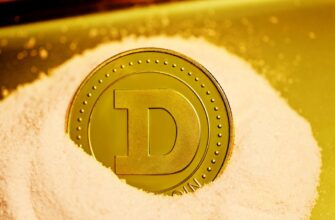- Introduction: The Critical Question for Crypto Holders
- What Is Cold Storage Encryption?
- Why Encryption Makes Cold Storage Safer
- Best Practices for Secure Encryption
- Potential Risks and Mitigation Strategies
- Frequently Asked Questions (FAQ)
- Q1: Can encrypted cold storage be hacked?
- Q2: What happens if I forget my encryption password?
- Q3: Is a hardware wallet safer than a paper wallet?
- Q4: Should I encrypt my recovery seed phrase?
- Q5: Does encryption slow down transactions?
- Conclusion: Encryption Is Non-Negotiable for Cold Storage
Introduction: The Critical Question for Crypto Holders
As cryptocurrency adoption grows, securing digital assets becomes paramount. One burning question dominates security discussions: Is it safe to encrypt funds in cold storage? The short answer is a resounding yes—when implemented correctly. Cold storage (offline crypto storage) combined with robust encryption creates a formidable defense against hackers, making it the gold standard for protecting Bitcoin, Ethereum, and other digital currencies. This guide explores why encryption enhances cold storage security, debunks myths, and provides actionable best practices to safeguard your assets.
What Is Cold Storage Encryption?
Cold storage keeps cryptocurrency private keys completely offline, isolated from internet-connected devices. Encryption adds another layer by scrambling these keys using cryptographic algorithms. Only someone with the correct password or recovery phrase can decrypt and access the funds. Common encrypted cold storage methods include:
- Hardware Wallets (e.g., Ledger, Trezor): Physical devices storing keys offline with PIN and passphrase protection.
- Paper Wallets: Printed QR codes of encrypted keys, stored physically.
- Metal Backup Plates: Fireproof/waterproof engraved plates holding encrypted seed phrases.
Why Encryption Makes Cold Storage Safer
Encrypting cold storage addresses critical vulnerabilities:
- Physical Theft Protection: If someone steals your hardware wallet or paper backup, encryption prevents immediate access.
- Tamper Resistance: Encrypted data is useless without the decryption key, deterring malicious actors.
- Defense Against Digital Snooping: Malware scanning offline devices can’t extract usable keys from encrypted files.
According to CipherTrace, over $3 billion in crypto was stolen in 2022—mostly from hot wallets. Cold storage with encryption slashes this risk exponentially.
Best Practices for Secure Encryption
Maximize safety with these protocols:
- Use Strong, Unique Passphrases: Combine 12+ random words (avoid personal info).
- Enable Two-Factor Authentication (2FA): Add biometric or hardware-based 2FA where possible.
- Verify Wallet Authenticity: Buy hardware wallets directly from manufacturers to avoid tampered devices.
- Store Backups Securely: Keep encrypted paper/metal backups in safes or bank vaults.
- Regularly Update Firmware: Patch vulnerabilities in hardware wallets promptly.
Potential Risks and Mitigation Strategies
While highly secure, consider these precautions:
- Password Loss: Losing your encryption passphrase means permanent fund loss. Solution: Use a memorable yet complex phrase and store a physical copy in a secure location.
- Supply Chain Attacks: Compromised hardware during shipping. Solution: Reset devices upon arrival and generate new keys.
- Physical Damage: Fire/water destroying paper backups. Solution: Use corrosion-resistant metal backups and multiple geographically dispersed copies.
Frequently Asked Questions (FAQ)
Q1: Can encrypted cold storage be hacked?
A: Extremely unlikely. Breaking AES-256 encryption (used by top wallets) would take billions of years with current technology. Attacks usually target user errors—like weak passwords—not the encryption itself.
Q2: What happens if I forget my encryption password?
A: Funds become irrecoverable. Unlike centralized services, decentralized crypto has no “password reset” option. Always test recovery phrases during setup.
Q3: Is a hardware wallet safer than a paper wallet?
A: Yes. Hardware wallets sign transactions offline without exposing keys, while paper wallets risk exposure when importing to software. Both benefit from encryption.
Q4: Should I encrypt my recovery seed phrase?
A: Absolutely. An unencrypted seed phrase is a single point of failure. Store it encrypted on metal plates or secure digital mediums like encrypted USB drives.
Q5: Does encryption slow down transactions?
A: Negligibly. Decryption occurs locally in milliseconds during transaction signing—no impact on blockchain speed.
Conclusion: Encryption Is Non-Negotiable for Cold Storage
Encrypting funds in cold storage isn’t just safe—it’s essential. By combining offline key isolation with military-grade encryption, you create a “digital Fort Knox” for your assets. Follow the best practices outlined here, stay vigilant against phishing scams, and remember: In crypto security, redundancy is your ally. Implement multi-layered protection, and you’ll confidently answer “yes” to the critical question: Is it safe to encrypt funds in cold storage? Your digital wealth deserves nothing less.








